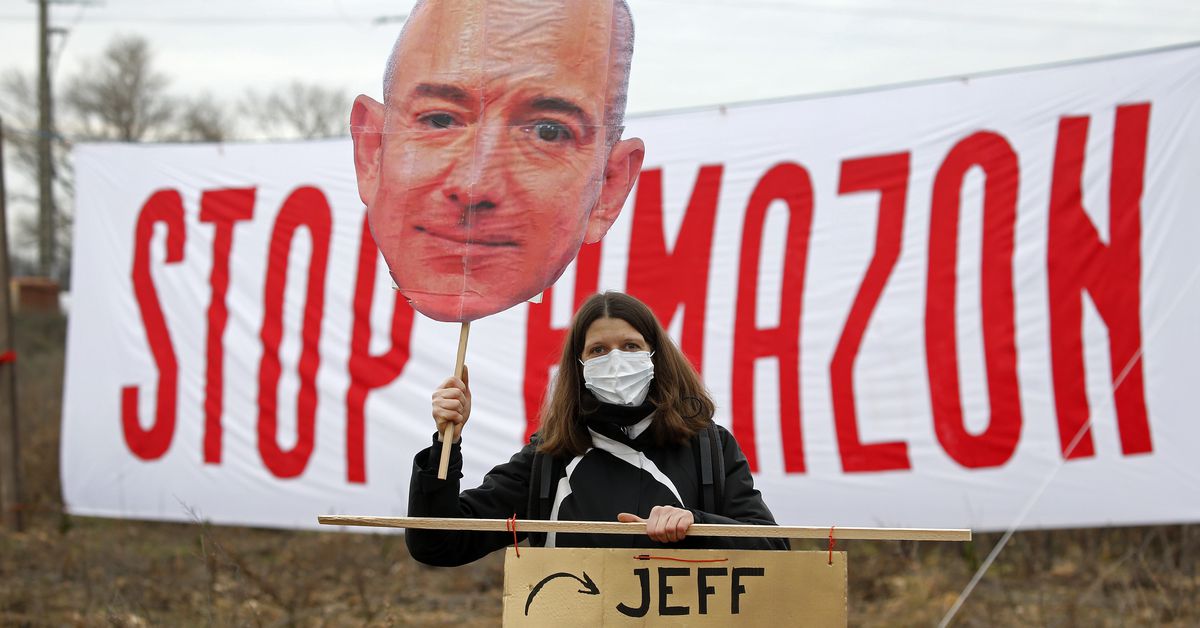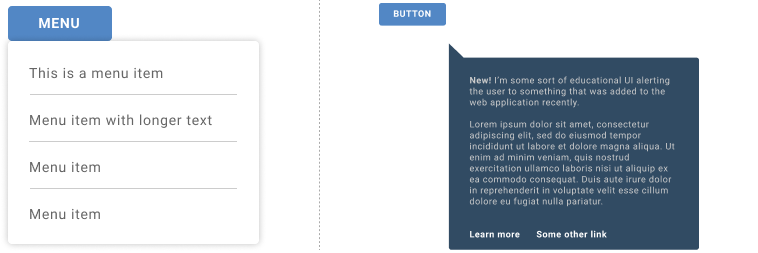
In his final letter to Amazon shareholders before stepping aside as CEO, Jeff Bezos offered a vigorous defense of the company’s treatment of its warehouse employees. But the billionaire also admitted that the retail giant needs to get its act together in the wake of a historic union drive at a company warehouse in Alabama.
“I think we need to do a better job for our employees,” Bezos wrote in the letter. “While the voting results were lopsided and our direct relationship with employees is strong, it’s clear to me that we need a better vision for how we create value for employees — a vision for their success.”
While much of Bezos’s final shareholder letter focused on all the good and value Bezos believes his company has accomplished for customers, shareholders, and Amazon merchants, the employee discussion hints at a CEO perhaps finally aware — even if just slightly — of his complicated legacy. Rather than just vague talking points, Bezos offered examples of how Amazon might seek to improve when it comes to employee treatment.
For example, Bezos said he wants Amazon to continue to invent ways to reduce the most common type of injuries that Amazon warehouse employees suffer: strains and sprains from repetitive work.
“We have always wanted to be Earth’s Most Customer-Centric Company,” Bezos said. “We won’t change that. It’s what got us here. But I am committing us to an addition. We are going to be Earth’s Best Employer and Earth’s Safest Place to Work.”
Amazon aiming to be the world’s best employer is indeed a departure for the company; Amazon employees have told Recode over the years that even HR executives at the company have stated internally some version of the reality that Amazon is “customer-obsessed” and not “employee-obsessed.”
But, as Amazon execs often do when the company faces critical scrutiny, Bezos offered a vigorous defense of the company that was dismissive of some employee complaints and the journalists who report on them.
“If you read some of the news reports, you might think we have no care for employees,” Bezos wrote. “In those reports, our employees are sometimes accused of being desperate souls and treated as robots. That’s not accurate. They’re sophisticated and thoughtful people who have options for where to work. When we survey fulfillment center employees, 94% say they would recommend Amazon to a friend as a place to work.”
An Amazon spokesperson did not immediately offer an explanation on how Amazon calculated the 94 percent figure.
Bezos’s letter comes a week after a majority of workers at an Amazon warehouse in Bessemer, Alabama, voted against unionizing with the Retail, Wholesale and Department Store Union. The election was only the second union vote at a US Amazon warehouse in the company’s 25-year history, and the largest by far. While 738 workers voted in favor of unionizing, 1,798 voted against it. Another 505 ballots were challenged — most of them by Amazon, the union said — and were not counted in the results. Even if many of those went in the union’s favor, the loss would have still been a resounding one.
The union has said it plans to file unfair labor practice charges against Amazon relating to its behavior during, and in the months leading up to, the election. And no matter the outcome of the challenge, Amazon will face other labor battles in the months ahead. While Amazon often touts its starting hourly pay of $15 for warehouse workers and medical and retirement benefits from day one of employment, pro-union workers say they have issues with facets of the work, such as Amazon’s strict surveillance of their every move, the amount and duration of break times, and production quotas.
Bezos argued that the performance goals are reasonable.
“We set achievable performance goals that take into account tenure and actual employee performance data,” he wrote. “Performance is evaluated over a long period of time as we know that a variety of things can impact performance in any given week, day, or hour. If employees are on track to miss a performance target over a period of time, their manager talks with them and provides coaching.”
On the topic of workplace injuries, Bezos said the company has already launched one program to “coach small groups of employees on body mechanics, proactive wellness, and safety” and is developing a staffing system that will automatically rotate workers into different roles to help prevent injuries. Amazon warehouse employees and managers have told Recode over the past year that it is not uncommon for performance goals to take precedence over the manual rotation of worker roles intended to prevent injuries.
The fact that warehouse working conditions made up a significant portion of the shareholder letter — and that Bezos said he will focus on employee improvements in his new role as executive chair of the Amazon board of directors — seems like a clear sign that the world’s richest man sees the threat to his company’s future of focusing on customer satisfaction at the expense of employees.
But Bezos’s outright dismissal that some Amazon warehouse workers feel like they are treated like robots points to a CEO disconnected, or shielded, from the everyday life of his massive front-line workforce.
Yes, it is absolutely true that there are Amazon warehouse workers who appreciate the pay and benefits that the company offers, especially in light of other employment options in the areas in which they live. But Bezos, in his final days as CEO, would also do well to at least hear from the many pickers, packers, stowers — and low-level managers who oversee them — who describe demoralizing work overseen by robots, computer algorithms, and metric-obsessed managers who have little regard for their human well-being.
Like its founder’s legacy, the discussion of whether Amazon is a good employer is complicated.






